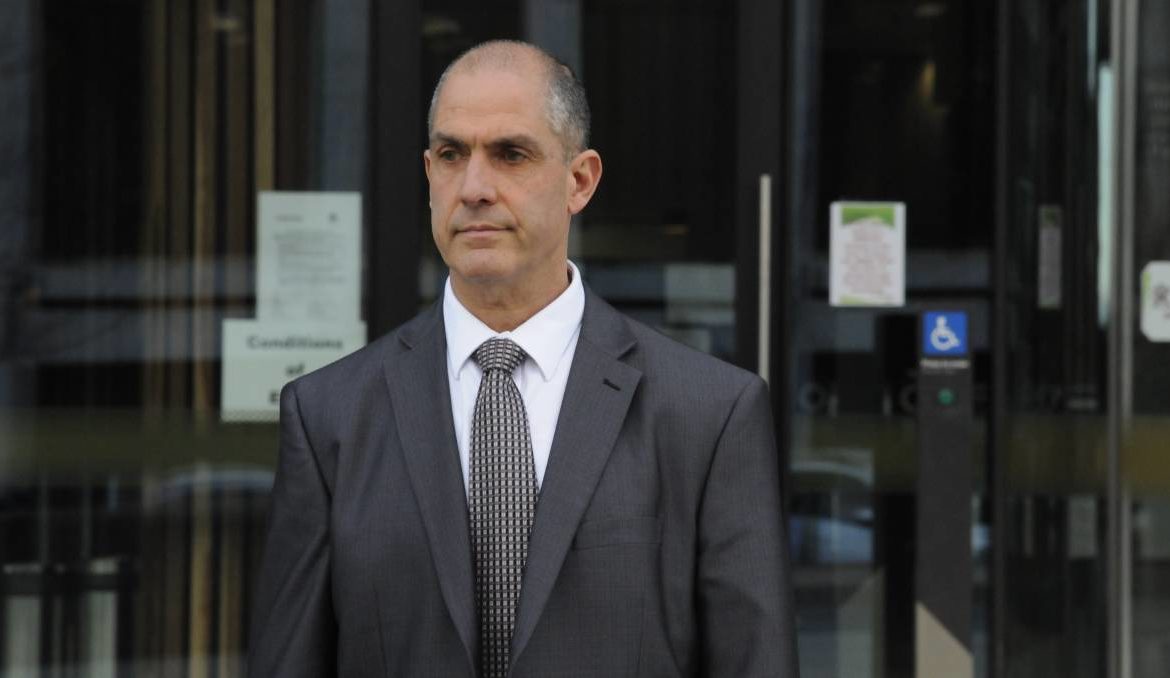news, crime, ramzi jabbour, mick keelty, nick kaldas, kangaroo hunt, kangaroo shooting, afp, commissioner, australian federal police
Former AFP deputy commissioner Ramzi Jabbour was overlooked for the position of commissioner due to the allegations against him of improperly using his firearm and abusing his senior position, the ACT Magistrates Court has heard. Two of Australia’s most senior former police officers on Monday gave glowing references of Mr Jabbour’s character in his defence against the two charges. Prosecutors allege Mr Jabbour took his police-issued Glock pistol on a hunting trip while on recreational leave where he gave it to one of his relatives who proceeded to shoot at kangaroos with it. He then returned the weapon to a safe in his office at about 4.30am the next day which prosecutors said was an attempt to avoid suspicion. Mr Jabbour also faces a charge of abusing his position for allegedly requesting legal advice from an AFP lawyer with the pretence it was for his own study but instead the advice was used in a relative’s legal studies assignment. Former AFP commissioner Mick Keelty told the court Mr Jabbour had been excluded from consideration for the commissioner’s job due to the allegations against him but had he not been facing the charges he would have been a frontrunner for the top job. Despite the allegations, Mr Keelty said he vouched for Mr Jabbour to former Agriculture Department secretary Daryl Quinlivan in relation to a position within the department. Mr Jabbour continues to hold a senior position within Agriculture, Water and the Environment. Mr Keelty said Mr Jabbour was innocent until proven guilty and still had a lot to offer to the federal government. “I have absolutely no hesitation saying [Mr Jabbour] is one of the most honest people I’ve ever met or worked with,” Mr Keelty said. Former deputy commissioner of NSW Police Nick Kaldas also provided a character reference for Mr Jabbour, telling the court he had “absolute faith in him and his integrity”. Both Mr Keelty and Mr Kaldas described Mr Jabbour as a “workaholic” who would work at all hours of the day and night. They suggested it was not unusual that Mr Jabbour allegedly sent the email to the AFP lawyer requesting advice and returned his firearm, on separate occasions, at about 4am. When presented with the email sent by Mr Jabbour, Mr Keelty said it could easily have been an excerpt from a casual conversation among colleagues. “It troubles me this has reached the level it has,” he said. Mr Kaldas said he could see no dishonesty in the email and perhaps it was merely a case of Mr Jabbour not expressing himself clearly. Regarding the incident where Mr Jabbour’s police-issued firearm was discharged up to nine times at kangaroos by a relative who was not a police officer, Mr Keelty said he thought there was “nothing strange” about the matter. “At best it’s a management issue, not an honesty issue,” Mr Keelty said. He also gave evidence that following terror attacks overseas and incidents such as the murder of civilian police worker Curtis Cheng in 2015 it had become more common for senior police officers to carry firearms, including while on leave.
/images/transform/v1/crop/frm/fdcx/doc7btnkg9far914br4cjzy.jpg/r31_476_4231_2849_w1200_h678_fmax.jpg
Former AFP deputy commissioner Ramzi Jabbour was overlooked for the position of commissioner due to the allegations against him of improperly using his firearm and abusing his senior position, the ACT Magistrates Court has heard.
Two of Australia’s most senior former police officers on Monday gave glowing references of Mr Jabbour’s character in his defence against the two charges.
He then returned the weapon to a safe in his office at about 4.30am the next day which prosecutors said was an attempt to avoid suspicion.
Mr Jabbour also faces a charge of abusing his position for allegedly requesting legal advice from an AFP lawyer with the pretence it was for his own study but instead the advice was used in a relative’s legal studies assignment.
Former AFP commissioner Mick Keelty told the court Mr Jabbour had been excluded from consideration for the commissioner’s job due to the allegations against him but had he not been facing the charges he would have been a frontrunner for the top job.
Despite the allegations, Mr Keelty said he vouched for Mr Jabbour to former Agriculture Department secretary Daryl Quinlivan in relation to a position within the department. Mr Jabbour continues to hold a senior position within Agriculture, Water and the Environment.
Mr Keelty said Mr Jabbour was innocent until proven guilty and still had a lot to offer to the federal government.
“I have absolutely no hesitation saying [Mr Jabbour] is one of the most honest people I’ve ever met or worked with,” Mr Keelty said.
Former deputy commissioner of NSW Police Nick Kaldas also provided a character reference for Mr Jabbour, telling the court he had “absolute faith in him and his integrity”.
Both Mr Keelty and Mr Kaldas described Mr Jabbour as a “workaholic” who would work at all hours of the day and night. They suggested it was not unusual that Mr Jabbour allegedly sent the email to the AFP lawyer requesting advice and returned his firearm, on separate occasions, at about 4am.
When presented with the email sent by Mr Jabbour, Mr Keelty said it could easily have been an excerpt from a casual conversation among colleagues.
“It troubles me this has reached the level it has,” he said.
Mr Kaldas said he could see no dishonesty in the email and perhaps it was merely a case of Mr Jabbour not expressing himself clearly.
“At best it’s a management issue, not an honesty issue,” Mr Keelty said.
He also gave evidence that following terror attacks overseas and incidents such as the murder of civilian police worker Curtis Cheng in 2015 it had become more common for senior police officers to carry firearms, including while on leave.







